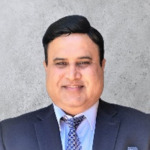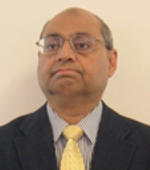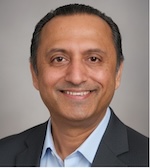GIKI, Topi, Pakistan | December 02-04, 2025

Higher Education Forum: Emerging Technologies, Challenges and Opportunities for Effective Teaching and Learning in Higher Education Domain
Co-organizers:
M. Yasin Akhtar Raja
Prof. Phys & Optical Sc & Engineering, UNC Charlotte, NC, USA
Email: raja (at) charlotte.edu
S.M. Hasan Zaidi
Pro-Rector Academics, GIKI, Pakistan
Email: prorector_acad (at) giki.edu.pk
Robina Farooq
Former VC, GC Women University, Faisalabad, Punjab, Pakistan
Email: drrobinafarooq (at) hotmail.com
M. Afzal Khan
Former VC The Islamia University of Bahawalpur, Pakistan
Email: afzalrao (at) hotmail.com
Panel Experts:
Invited Experts from Academia, Industry Sector, and State & City Functionaries:
To be announced
Now, under normal as well as various sudden and unforeseen situations all over the globe, the role of digital technologies is multilevel and profound. In unprecedented conditions, the educational institutions, public service- and healthcare providers all have dependence on the high-speed and high-reliability connectivity; enabled by the global communications networks and information services available both in public- and private-sectors. A paradigm shift is inevitable from the traditional legacy models and operations to a rapid response and adaptable approach with a high-level security both in physical and cyber realms. Correspondingly, AI and the off-shoot technologies are bringing opportunities and challenges alike.
While the high-fidelity and high-speed network services are the backbone, but without compatible contents-development, management and suitable delivery, the entire-system would not function to accomplish the goals and objectives. Therefore, it comes to mutual support and cooperation among the institutions of higher learning & training and the industrial sectors at all levels. This could equitably be accomplished with the state-supported resources but real-success hinges on the participation of private-sector, philanthropist non-governmental contributors and achievers.
For services and developments, sharing and adoption, dedicated- and committed taskforce is needed to connect, service, and maintain the standards, reliability and credibility. Using the Symposium Platform, the participants having wide-ranging experiences and vision will share their expertise and wisdom to propose and develop recommendations for the transformation of academic knowledge into viable products, services and production processes for continuity and sustainability with a global impact of academia and entrepreneurship.
Objectives:
There is a dire need to create awareness and incentivize the young minds to step forward and blend Engineering and Business Education rather than just conventional degree-programs. Today AI in various forms and format is proliferating in all sectors. But the fundamentals of human knowledge base should not be ignored. The new paradigm will have a potential for paving a way towards self-sufficiency, reliance, and employability; all contributing towards a positive attitude over the globe.And further, in turn it can fetch entrepreneurship rather than to be vagrant here and there with degree and no desirable jobs in hand. The foremost aims are the mitigation of the gaps between formal education and the workplace/job-market needs by developing the skills and imparting refined training to the graduates. The following bullet points simply guide the thought process and sky is the limit!
• To ensure educational continuity and proposed strategies to reshape, evolve, and transform the higher education in the wake of pandemics, global natural and man-made disasters and conflicts.
• To fill the existing gaps between excellence, access and prevailing university education paradigms using the emerging technologies of various kinds and forms.
• Focusing on training the technical and support staff at the institutions to maintain access and work-quality in the university education delivery and assessment methods.
• Preparing the University graduates for National- and international job markets with befitting skillsets and ensuring entrepreneurial endeavors.
• Capitalizing on the role of technology such as ICT, Cyber-security, ML and AI to undertake new measures for benchmarking the quality of education and tackling the current digital divide. Eventually, sharing the experiences with the secondary to elementary education system as trickle-down approach.
• Building Professional Teams to develop traditional courses to leverage AI, Machine Learning, Cloud Computing, Data Science and the related emerging technologies.
• Developing frameworks for coordination and cooperation to initiate effective and operative partnerships between private and private sectors.
Registration:
Visit HONET registration page here.Speakers

Dr. Khizer Bhutta
Title: Unexplored Dimensions of Innovation-New Paradigm for Global Collaborations in Era of AI

Dr. Ahmed S. Khan
Title: Effective Teaching and Learning in the Era of AI

Syed Qutbuddin Hassan (Hassan)
Title: Building Alliances: A Ten-Year Journey to Global Transformation, and How it can help building better Academia–Industry Partnerships




 conference program
conference program


